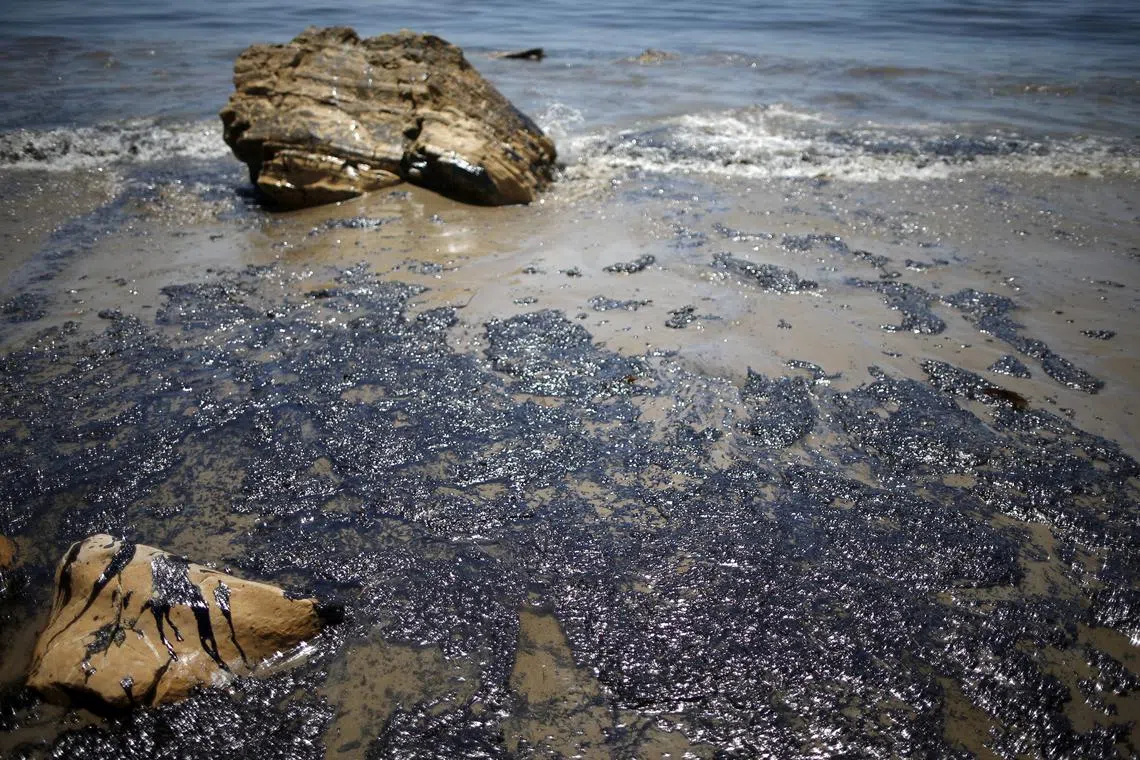COP27: Small island nations want Big Oil to pay for climate damage
Sign up now: Get ST's newsletters delivered to your inbox

An oil slick along the coast of Refugio State Beach in Goleta, California, in 2015.
PHOTO: REUTERS
SHARM EL SHEIKH, Egypt – Loss and damage funding does not necessarily have to come from countries at the state level, but could potentially be sourced from fossil fuel companies by taxing their profits, said Antigua and Barbuda’s Prime Minister Gaston Browne.
Giving reporters an update on loss and damage negotiations, Mr Browne, who spoke on behalf of the Alliance of Small Island States (Aosis) on Tuesday, said these companies could have their profits taxed to raise funding to help developing countries, especially small island states. The funds would be used to help nations better adapt to and mitigate the effects of climate change.
Funding for unavoidable losses and damage caused by climate change has officially been added to the agenda of the United Nations climate summit
UN Secretary-General Antonio Guterres, in a joint press conference on Monday alongside Pakistan’s Prime Minister Shehbaz Sharif, urged nations to make global commitments towards loss and damage. Pakistan has in recent months suffered from heavy flooding,
Mr Browne said loss and damage finance will, in essence, help developing countries accelerate the transition to renewable resources, as many do not have the financial means to do so otherwise and risk not being able to reach net-zero carbon emissions by 2050 as most countries have pledged to do.
Loss and damage finance will also enable these countries to build more climate-resilient infrastructure that can withstand the ravages of climate change, without negating the need to keep global temperatures from rising, he added.
Mr Browne said Canada is one country that has a global carbon tax on fossil fuel technologies, enabling it to make about a trillion dollars in profits annually.
“This year alone, it is expected to be around US$2 trillion (S$2.8 trillion). So if you take maybe 50 per cent of that, 10 per cent of that (for loss and damage), shareholders can still get a very sustainable return,” he added.
He said that Aosis sees loss and damage funding as “a form of solidarity” with nations standing with one another and that it is not intended to be retroactive.
“We understand the implications of having a retroactive fund, in that trillions of dollars in liabilities will be established,” he said.
Aosis views the loss and damage mechanism as a way to provide funding to countries that are distressed, especially immediately after climate events, and to assist those which are vulnerable.
“Let’s set up a fund that is operational by 2024 and that will unlock resources for developing countries... to reduce emissions, reduce global temperatures and save our planet and human civilisation,” said Mr Browne.



